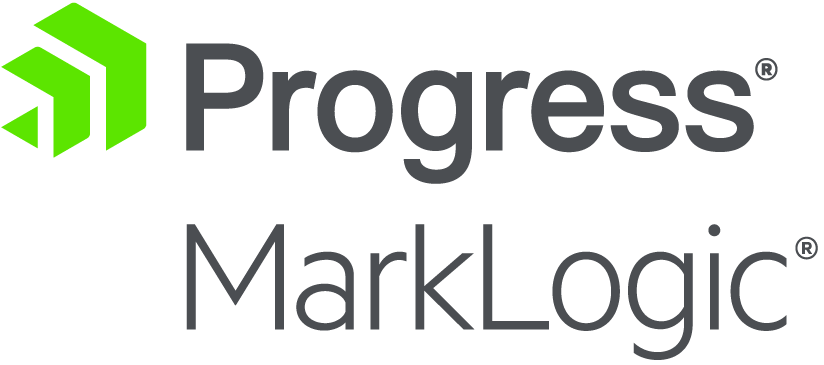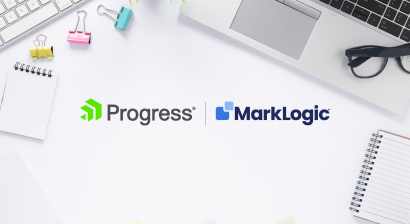Blog
What Makes a Great Progress MarkLogic Developer?
- 2 July, 2024
- By Dave Cassel

The pace of change in technology is a never-ending challenge that all developers need to manage. Progress MarkLogic developers are certainly no strangers to this. When MarkLogic was first released in the early 2000s, it was a database for XML that you interacted with using XQuery. In the last 20 years, the database's capabilities have changed dramatically, as have the patterns for working with it. The addition of JavaScript back in 2015 made MarkLogic accessible to much wider range of developers. But what other skills are needed to be successful?
As we delve into the world of MarkLogic, we'll uncover the essential skills, roles, and responsibilities of these tech maestros. We'll also explore the unique features of MarkLogic, a multi-model NoSQL database designed for data integration and enterprise-grade applications.
So, whether you're a seasoned developer looking to expand your skill set, or you're just starting your journey in the NoSQL world, you're in the right place. Let's dive in and explore what it means to work with MarkLogic.
Understanding the Role of a MarkLogic Developer
MarkLogic developers perform a variety of tasks. Data modeling, writing transforms, optimizing queries, and scripting tests all fall under a MarkLogic developer's responsibility. Interestingly, some tasks that would fall to a DBA in the relational world are available to the MarkLogic developer. (See What Does It Mean to be a MarkLogic DBA?)
MarkLogic projects always involve additional components. That might be as simple as a user interface that creates and displays data that lives in MarkLogic, but often it's working with data orchestration software to extract from other sources, get it into MarkLogic, and initiate processing there. Once MarkLogic has done its magic with the data, we need to make it available. This might be through APIs directly serving applications or pushing data to downstream systems. Working in this environment provides exposure to an interesting variety of tools. A successful MarkLogic developer will be thinking about how their work interacts with other systems. Understanding API concepts including REST and JSON are important for such developers.
Developers often take on the role of MarkLogic administrators as well. Admin tasks include optimizing system performance, maintaining security protocols, and updating MarkLogic servers, which need to run efficiently round the clock for businesses dealing with high volumes of data. MarkLogic supports JavaScript and XQuery for code that runs within the database (similar to stored procedures in an RDBMS). Being able to write well-structured, tested, and performant code is critical.
Part of the MarkLogic developer's role includes mastering MarkLogic's unique features. For example, MarkLogic's multi-model database supports various data models, such as documents, triples, and views. Further, its bi-temporal data management feature empowers developers to track and analyze historical data changes. It's also essential to understand MarkLogic's geo-spatial data capabilities, allowing developers to manipulate and evaluate spatial data.
Overall, being a MarkLogic developer involves a combination of intricate technical knowledge, problem-solving skill, and creative thinking, aimed at harnessing the potential of data to generate impactful solutions.
How to Become a MarkLogic Developer
Beginning a career as a MarkLogic developer requires a good blend of skills and knowledge. By focusing on these key elements, one can successfully venture into this dynamic field:
- Master Key Technologies: Acquiring proficiency in languages like JavaScript and XQuery presents an invaluable asset. You'll find these languages are the primary foundations for developing applications and managing data in MarkLogic. Further, hands-on experience with APIs - especially REST and JSON, improves your interaction with the MarkLogic Server, creating a platform for seamless integration.
- Understand MarkLogic Features: A deep-dive into MarkLogic's capabilities is crucial. Let's talk data models. You’d delve into document (XML, JSON, binary, text), geospatial, and semantic data models, as well as relational-style views. Layer in knowledge on bi-temporal data capabilities, and you're already picking up robust MarkLogic developer skills.
- Get Certified: A MarkLogic Certification represents your knowledge and skills to the world. MarkLogic University offers certification exams such as MarkLogic Certified Developer and MarkLogic Certified Administrator, positioning you as a credible authority in the MarkLogic landscape.
- Real-world Experience: Test the waters. Start working on small projects or internships where you can apply your MarkLogic skills. This experience provides an edge, especially when dealing with complex, real-world data challenges. Contribute to the community by working on open-source projects.
- Continuous Learning: Keep track of MarkLogic's updates and improved features. It prompts a culture of continuous learning, ensuring you stay ahead in your MarkLogic developer journey.
There, you've got it! Remember, becoming a MarkLogic developer necessitates more than just technical prowess. It’s a problem-solving, constantly-adapting and growing process, and your creative knack makes the difference in crafting impactful solutions across industries.
The Day-to-Day Tasks of a MarkLogic Developer
A typical day as a MarkLogic developer can involve a range of activities, tailored to specific project goals and technical requirements. Here, we'll dive into the primary responsibilities and daily duties that can shape this role.
- Developing and Maintaining JavaScript and XQuery code: As a MarkLogic developer, I spend a significant amount of time crafting robust JavaScript and sometimes XQuery. JavaScript, for example, is a widely-used language in the creation of APIs for seamless data integration. It's crucial here to write efficient code, ensuring that the system performance doesn't suffer in the process.
- Designing and Implementing Data Models: Unique to the role is the responsibility of developing data models to handle diverse data types. For instance, I might construct a model to manage complex bi-temporal data, significantly enhancing the capability of the database to process and store data effectively.
- Testing and Debugging: A role in development isn't complete without thorough testing and debugging. When I write applications, I include a good suite of scripted tests, in addition to manual testing. This helps identify bugs, if any, before they cause major system glitches.
- System Optimization and Security: A MarkLogic developer has a vital role in optimizing system efficiency. Hence, I regularly monitor system performance, optimizing where needed to ensure smooth operation. Additionally, maintaining system security is of paramount importance. This involves conducting regular risk assessments and implementing necessary security measures to thwart potential threats.
- Technical Documentation: Just as crucial as writing code is the task of documenting it. By maintaining thorough technical documentation, including API documentation, I ensure that my work is transparent and easy for other developers to understand and use.
- Continuous Learning and Updates: Given the rapid evolution of MarkLogic and related technology, part of my daily routine as a developer is catching up with the latest updates and enhancements in MarkLogic. This helps me hone my skills, stay abreast of cutting-edge techniques, and consequently, improve the overall quality of my work.
These tasks are typical for a MarkLogic developer's day, embracing the challenges and rewards that come with this unique and valuable role.
Conclusion
I've been working with MarkLogic since 2009. Over that time, I've watched the platform evolve from a great foundation, broadening its capabilities and performance as it grows.So there you have it. Becoming a successful MarkLogic developer isn't just about mastering XQuery and JavaScript. It's about understanding data models and gaining hands-on experience. It's about earning certifications and contributing to the MarkLogic community. It's about staying current with industry trends and making continuous learning a part of your professional journey. With high demand in data-intensive sectors and competitive salaries, it's a career path worth considering. So why wait? Dive into the world of MarkLogic development and start shaping your future today. Remember, in this dynamic field, it's not just about what you know, it's about what you're willing to learn.
Share this post:
4V Services works with development teams to boost their knowledge and capabilities. Contact us today to talk about how we can help you succeed!







The pace of change in technology is a never-ending challenge that all developers need to manage. Progress MarkLogic developers are...